When Clutter Peaks: Holidays, Trips and Emotional Seasons
As an Amazon Associate and member of other affiliate programs, I earn from qualifying purchases.
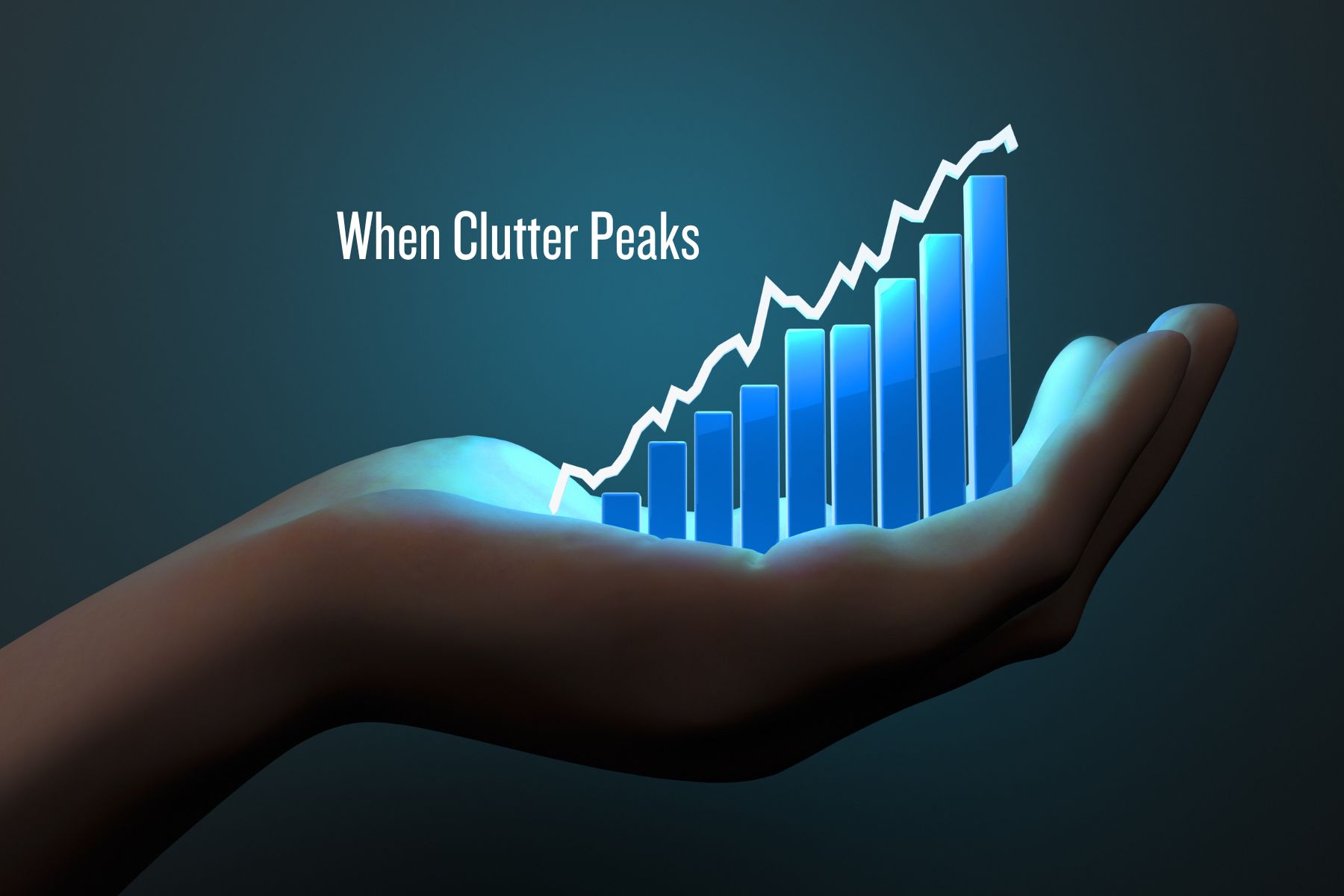
Have you ever been moving along, living your life, only to look up and notice that your home has seemingly doubled its clutter population? When clutter peaks, it’s usually due to a few specific circumstances. Awareness goes a long way to avoiding the clutter that comes with them, or at least nipping it in the bud!
If you anticipate the influx of clutter associated with these scenarios, you can be proactive about mitigating the impact on your home. See if any of these sound familiar to you…
The Holiday Season
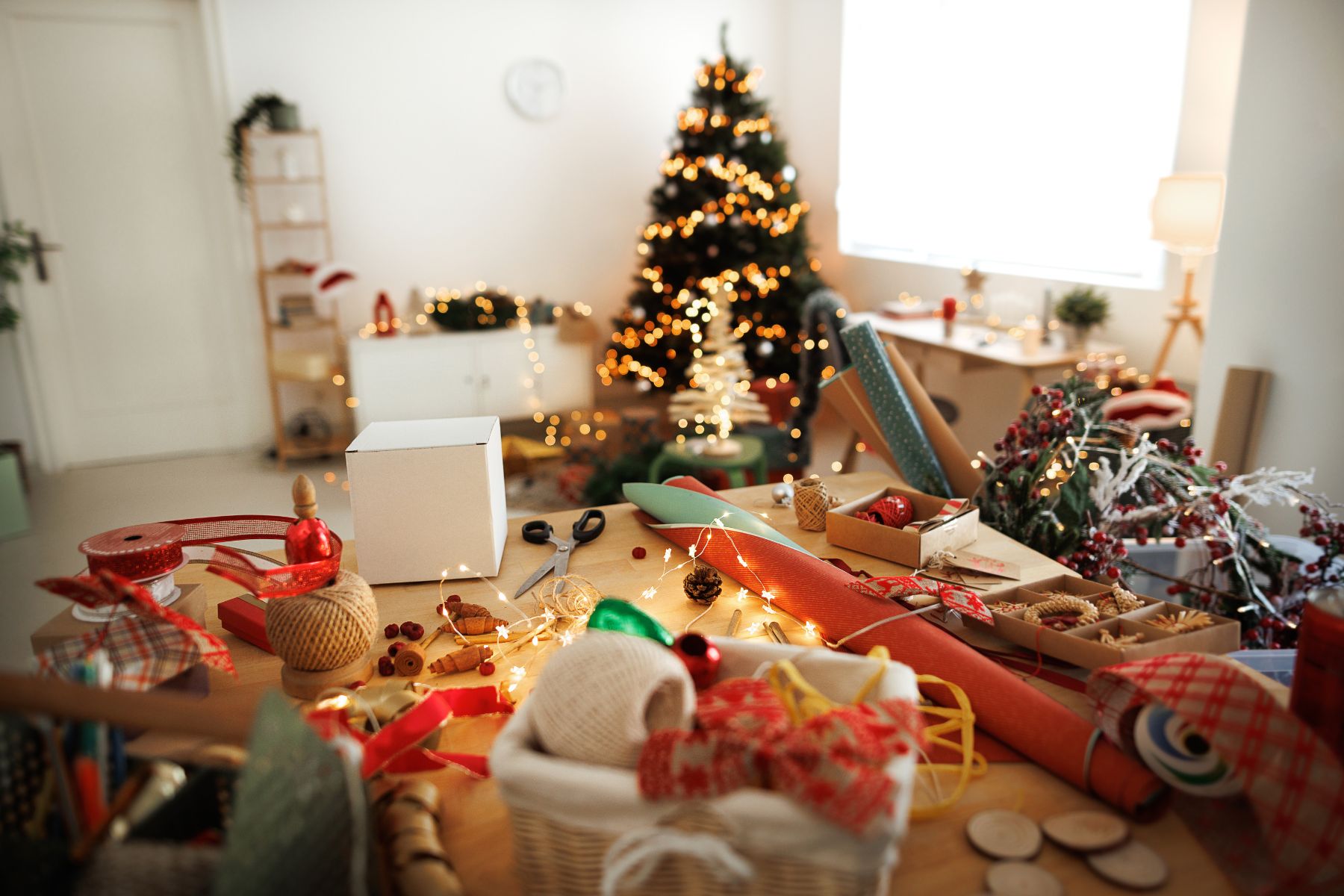
We are just coming off the season of giving and it’s likely you have a lot of new things in your home. Of all the clutter peaks this one is the most predictable. If you entertained or had houseguests there is probably some lingering aftermath from that as well.
My recommendation is to take some time now to find specific homes for anything new or entertaining-related that you haven’t already put away. Note, this will probably mean doing some decluttering in the affected storage areas. Take that extra step to declutter as you are putting things away vs. adding more stuff to an already crowded drawer/cabinet/shelf.
Now that’s done you can make a note (in your Holiday Diary!) to do some light decluttering in the months leading up to the holidays. This is good for 2 reasons:
- Your donations will align with the season of giving and are much more likely to find a wonderful new home
- It will be much easier to put things away after Christmas, which means you’ll be more likely to do it!
Coming Home from Traveling
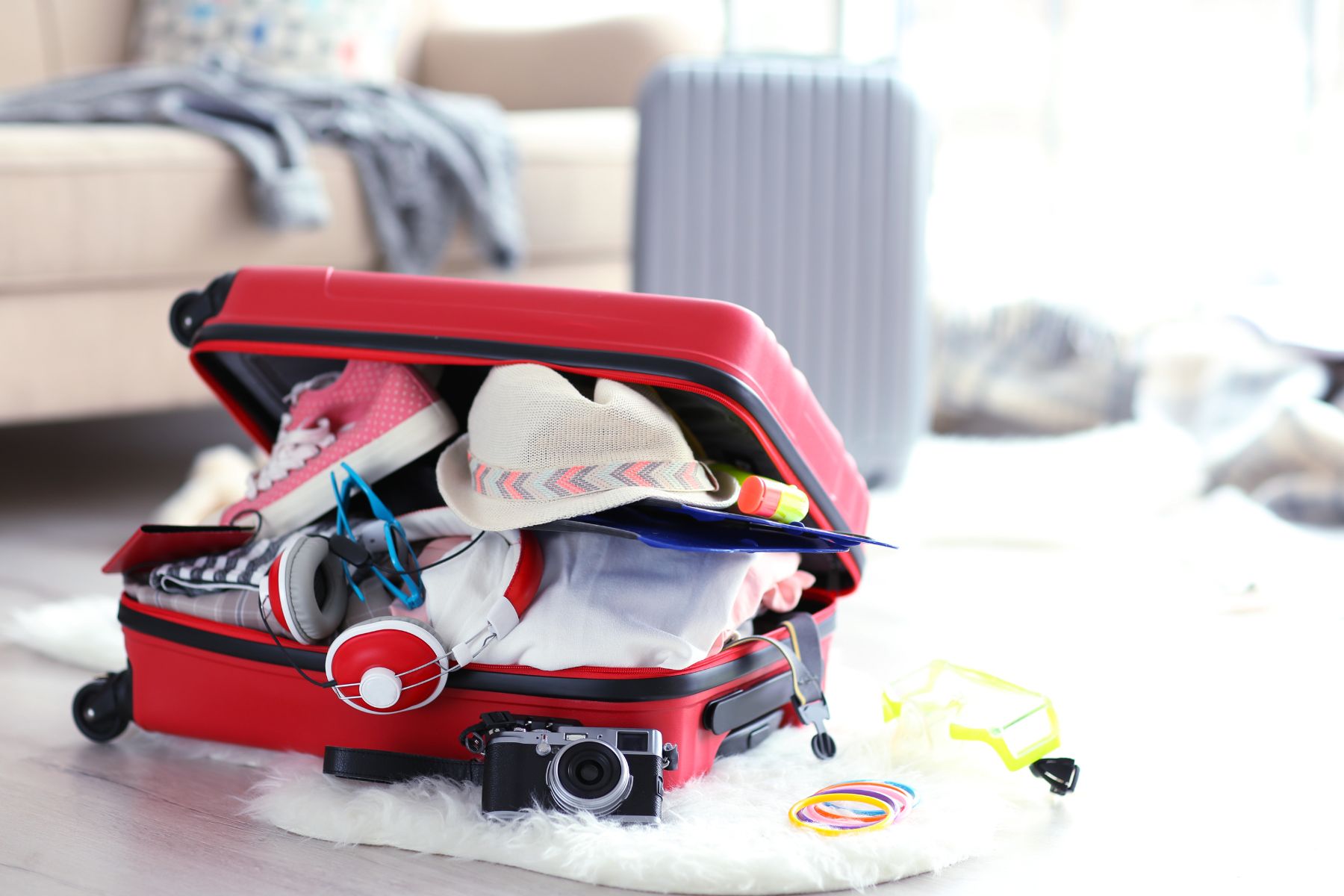
Welcome Home! Returning from a trip is when visual clutter peaks. The contributing factors are: piles of mail, yet-to-be-unpacked luggage and anything you didn’t have time to get to before you left. Added together, it becomes visual clutter that your brain processes in 3 stages:
- At first you’ll feel mild stress and the pull of a visual to-do list in the impacted areas
- As time marches on and you’ve re-entered your busy life, the clutter will fade into the backdrop of your home and you’ll cease to notice it on a conscious level. However, your subconscious is making note and adding that weight to your cognitive load.
- Instead of helping you relax, your home will cause your cortisol levels to rise consistently, silently robbing you of your peace.
All of this from one harmless getaway? I know it sounds dramatic, but the pattern works like a snowball. The way to avoid that snowball is to mentally anticipate this pattern and nip it in the bud as soon as you get home. Push yourself past the fatigue and take care of the mail & the unpacking as soon as you get home. In reality it seems like a big job but it only takes a few minutes. Think of it as the medicine you need to take to keep those cortisol levels low. It’s worth the investment of a few minutes, trust me!
Parents in Twilight Season
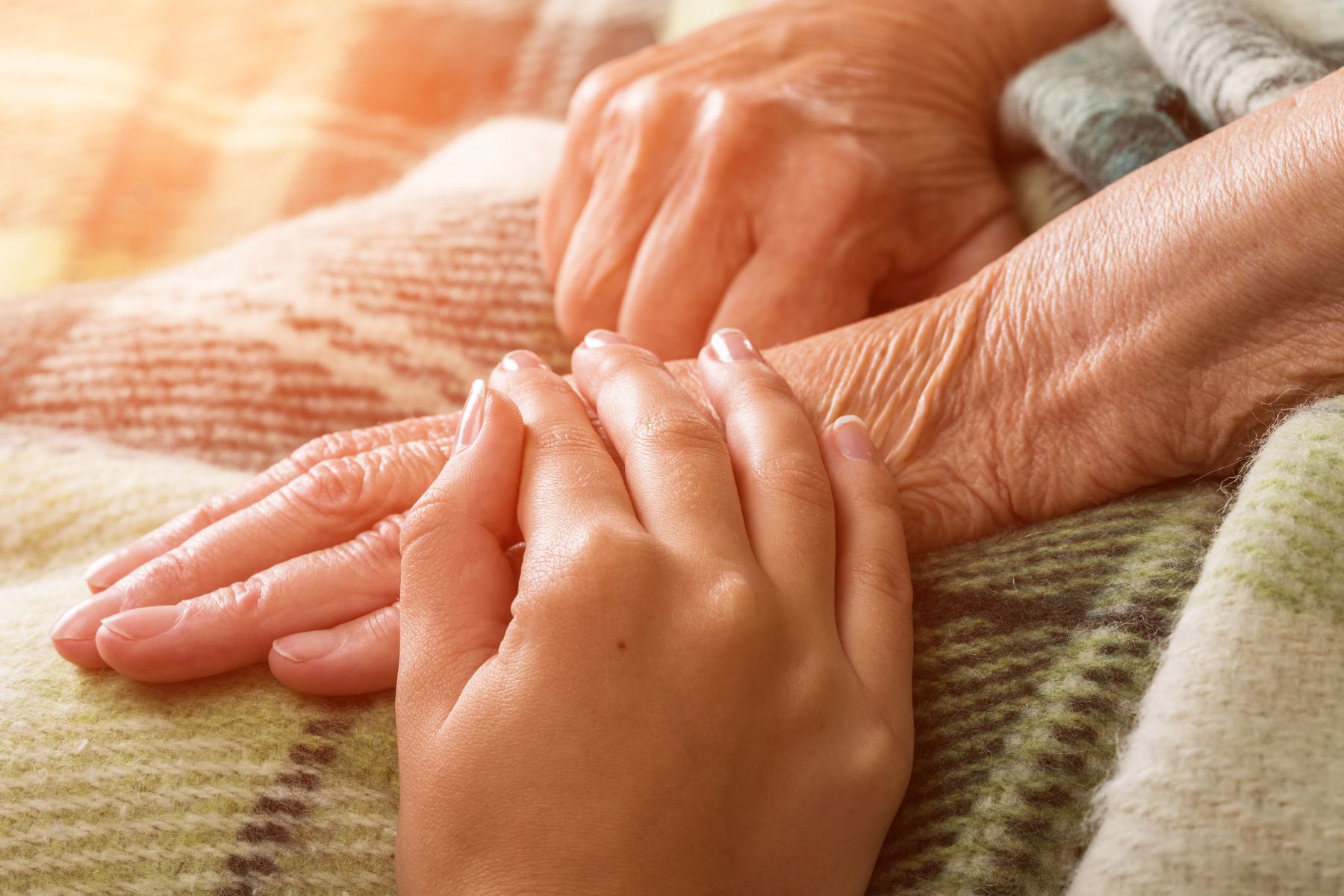
If you’re in midlife like me, you’re in the middle of one of the steepest clutter peaks of all. I’m referring to the belongings of your parents migrating over to your home. The migration may be gradual if they are still living and gifting you things they want you to have or downsizing their living situation. Or it may be sudden, if they’ve passed away and now it’s your job to take on their lifetime of belongings and decide what to do next.
This clutter peak is a common theme in my organizing and coaching practice. I see so many folks who feel that crushing weight of expectation – whether their parents are living or dead. It can be paralyzing and most are left with garages, basements, attics and storage units full of their parents’ things.
Unlike the first two peaks, the solution to this challenge is never simple. It involves big feelings, heavy lifting and potentially revisiting some trauma. If your parents are still living today, I recommend a slow and gradual process of planning for the dispersal of their belongings. You can start with a conversation to get their thoughts on the subject up front. Then let the discussion help lead you to the best path forward. I do not deny this topic may not be easy to broach. It’s going to take courage and some mental fortitude. But like most other Hard Things, the most difficult step is the first one! I recommend The Gentle Art of Swedish Death Cleaning (a very Swedish title – no beating around the bush!) It’s an excellent resource to help navigate this path.
If your parents have passed, you are left with mostly your own feelings to navigate (plus those of your siblings.) In this scenario it’s helpful to build up some muscle around emotional decluttering. I have lots to impart on this topic but it’s way too much for a blog! In fact, I’m creating a digital course on the subject. It’s called Clearing Emotional Clutter and you can get on the waitlist here.
As I previously stated, the awareness that these clutter peaks exist is so helpful. Awareness enables you to prepare for them properly, thus mitigating any negative impact on your home or your mental health. If you are in the middle of any of these right now – courage! Remember that You Can Do Hard Things – and I’m rooting for you!


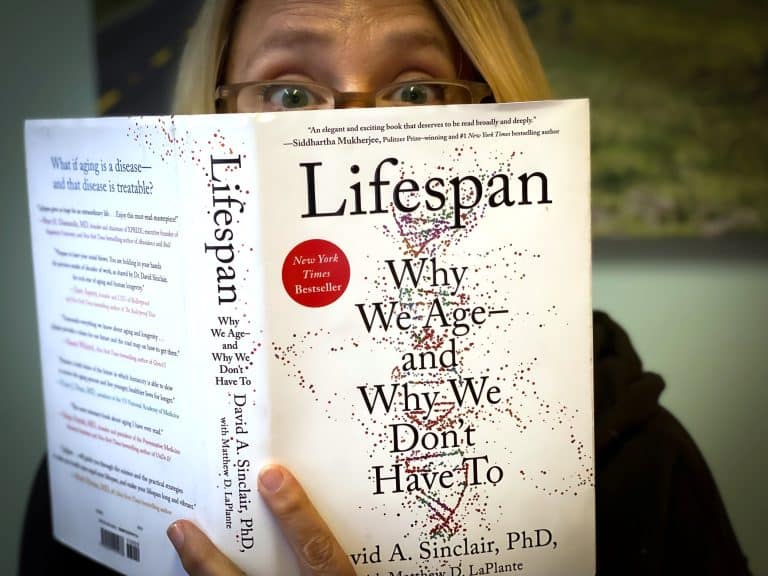




Something I’ve done is to buy several skylight photo frames. I want to see and enjoy my photos and not be tethered to a computer. Sort photos into categories and load them as you want- holidays, kids growing up, trips, whatever you want. I see them daily and enjoy the memories.